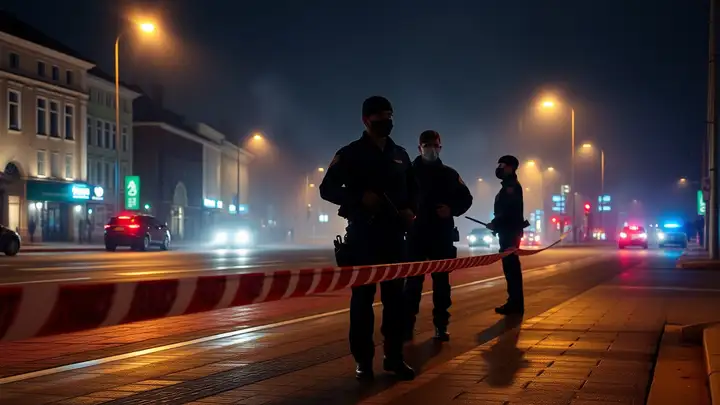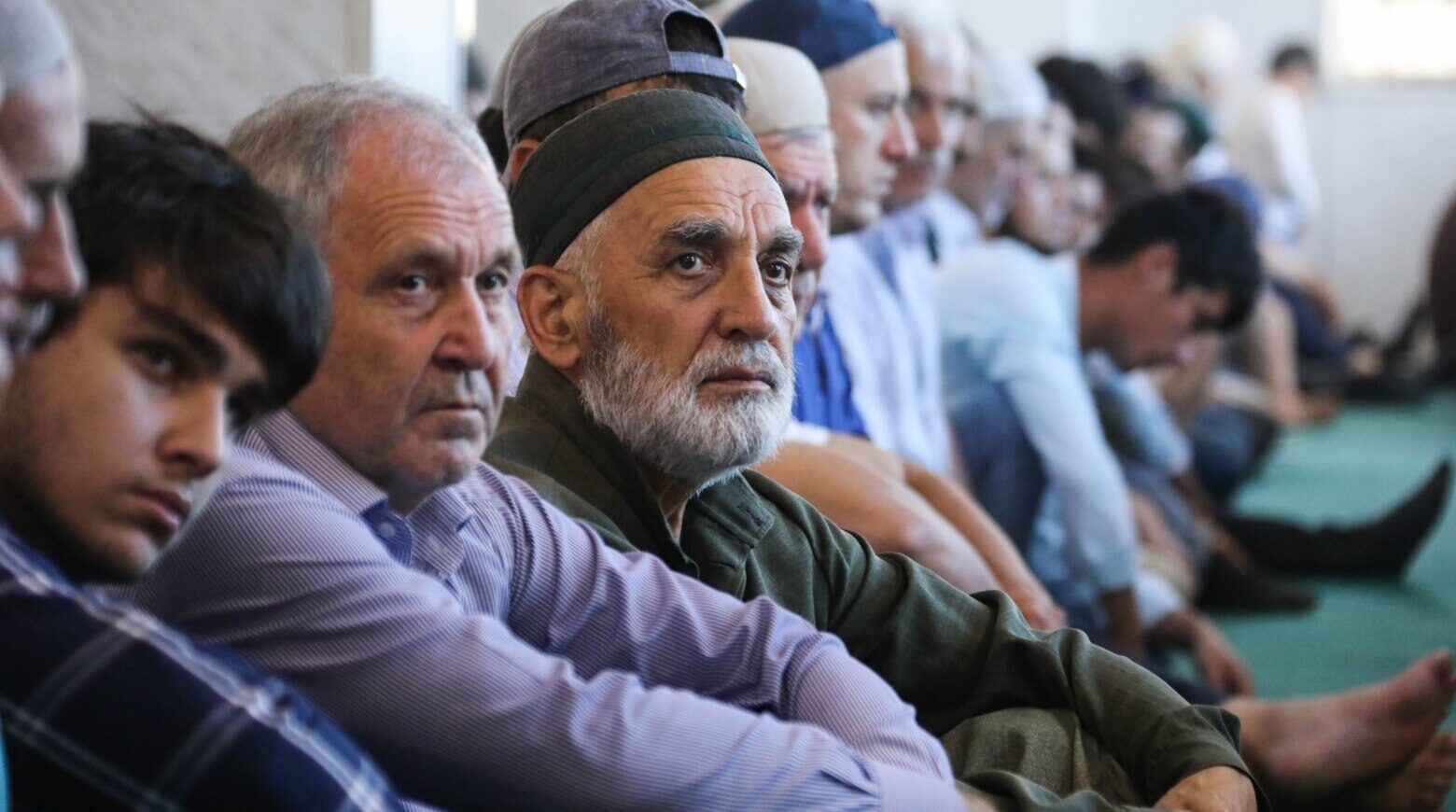Chechen Leader Says he Does Not Repress Religion and Press Freedom, or Kill his Opponents
Chechen Leader Says he Does Not Repress Religion and Press Freedom, or Kill his Opponents
Chechen President, Ramzan Kadyrov, on May 5 slammed a report by a US government commission on infringements of religious freedom worldwide in which he came in for particularly harsh criticism. Earlier this month, Kadyrov was listed a “predator” of press freedom, and last month the office of Austria’s public prosecutor publicly charged that Kadyrov had ordered last year’s bungled kidnapping of his former bodyguard, Umar Israilov, in Vienna. Israilov, who had detailed alleged human rights violations by Kadyrov in testimony to the European Court of Human Rights, was shot to death during the attempted January 2009 kidnapping.
The US Commission on International Religious Freedom’s Eleventh Annual Report on Religious Freedom, released on April 29, paints a bleak picture of the state of religious freedom in the North Caucasus. It states that the region –particularly in Chechnya, Dagestan, Ingushetia, and Kabardino-Balkaria– is facing “chronic instability due to severe economic dislocation, especially among young men; certain radical foreign influences on indigenous Muslims, and endemic corruption and local political grievances.” All these factors, the report adds, are fuelling “increasingly widespread and sometimes violent expressions of popular dissatisfaction by Muslims with the local and national Russian government.”
The USCIRF report cites human rights groups as reporting that in Russia, and particularly in the North Caucasus, Muslims perceived as “overly observant” have been killed, “disappeared” or arrested on “vague official accusations of alleged Islamist extremism or for allegedly displaying Islamist sympathies, without any proven relationship to Islamist militancy.” Persons suspected of involvement in alleged Islamist extremism have also reportedly “been subjected to torture and ill-treatment in pre-trial detention, prisons, and labor camps,” the report states.
The report, which says that respect for freedom of religion or belief varies in Russia depending on the personal views of regional justice ministry officials or even governors, specifically cites Kadyrov, noting that he has “declared that his republic ‘would be better off’ if it were ruled by sharia law’” and has “justified polygamy and honor killings.” Among the report’s “priority recommendations” is that the US impose a visa ban and freeze the US assets of Kadyrov for “his leadership of the Chechen armed forces, which the European Court of Human Rights (ECHR) has found involved in severe human rights abuses,” his alleged killings of political opponents and local human rights activists; and his “institution of strict sharia law in Chechnya in violation of international religious freedom standards” (https://www.uscirf.gov/images/annual%20report%202010.pdf).
Kadyrov told reporters in Grozny on May 5 that he was “extremely surprised at the content” of the USCIRF report, stating that its claims about “brutal persecution of Muslims in Russia” are “incomprehensible.” In response, he criticized US actions in Vietnam, Iraq, where, he said, the US had killed “hundreds of thousands” of people and executed Saddam Hussein “on a Muslim holy day” in order to “insult the sensibilities of the world’s Muslims, and Afghanistan, where, he said, “ordinary citizens have been perishing for years” while “the Americans are supposedly looking for Bin Laden.”
Kadyrov also claimed that during special operations, “persons with documents of US citizens” have been frequently found among Chechen rebel commanders “or their instructors.” He added: “Step by step, we are resolving the most complex problems of the post-war period, [problems] created not least of all through the efforts of foreign special services. Therefore, we will cope with our problems ourselves and can do well without suggestions from those who know nothing about the religion of Islam.” The Chechen leader denied commanding any “armed forces,” stating that Russia’s constitution grants that prerogative to the country’s president as commander-in-chief and that all troops deployed in Chechnya are subordinated to either the federal defense or interior ministries (https://www.chechnya.gov.ru/page.php?r=126&id=7363).
Earlier this month, the international press freedom watchdog group, Reporters Without Borders, included Kadyrov and Russian Prime Minister, Vladimir Putin, on its list of 40 “predators of press freedom” (https://en.rsf.org/www-rsf-org-predators2010-03-05-2010,37235.html). The Paris-based group said in a statement on May 3 –World Press Freedom Day and the day this year’s list of press freedom “predators” was published– that Kadyrov was linked to the murders of award winning journalist Anna Politkovskaya in Moscow in 2006 and the human rights activist Natalya Estemirova, who was kidnapped in Grozny last July and found murdered in Ingushetia a short time later. “Both these murders had Kadyrov’s prints on them, as have many others that have taken place under the regime of terror he has imposed in Chechnya,” Reporters Without Borders said (The Moscow Times, May 4).
Responding to Kadyrov’s inclusion on the list of press freedom “predators,” Kadyrov’s spokesman, Alvi Karimov, said in a statement that Kadyrov is among the politicians most accessible to the press and that the Chechen leader met in April with 19 journalists from around the world. Karimov also said Kadyrov has never asked journalists to clear material in advance. He called the list “non-objective,” adding that “we are ready for a dialogue with the list’s authors” (https://www.chechnya.gov.ru/page.php?r=126&id=7353).
On April 27, the Austrian public prosecutor’s office said government investigators concluded that Kadyrov had ordered the kidnapping of Umar Israilov, his former bodyguard who had accused him of human rights violations, and that one of the group of Chechens who tried to abduct Israilov in Vienna in January 2009 shot him to death after he broke free and tried to escape. Austrian investigators say the hit men called Kadyrov aide Shaa Turlaev while trying to escape Austria and that two of them had met with Turlaev in Austria before Israilov’s murder (The New York Times, April 27). Kadyrov dismissed the Austrian prosecutors’ accusation as part of a smear campaign (The New York Times, April 29). Earlier this month, Turlaev denied that he organized either Israilov’s killing or an attempt to kill another Kadyrov opponent, Isa Yamadaev (The Moscow Times, May 4; The Sunday Times, May 2; EDM, April 23).


